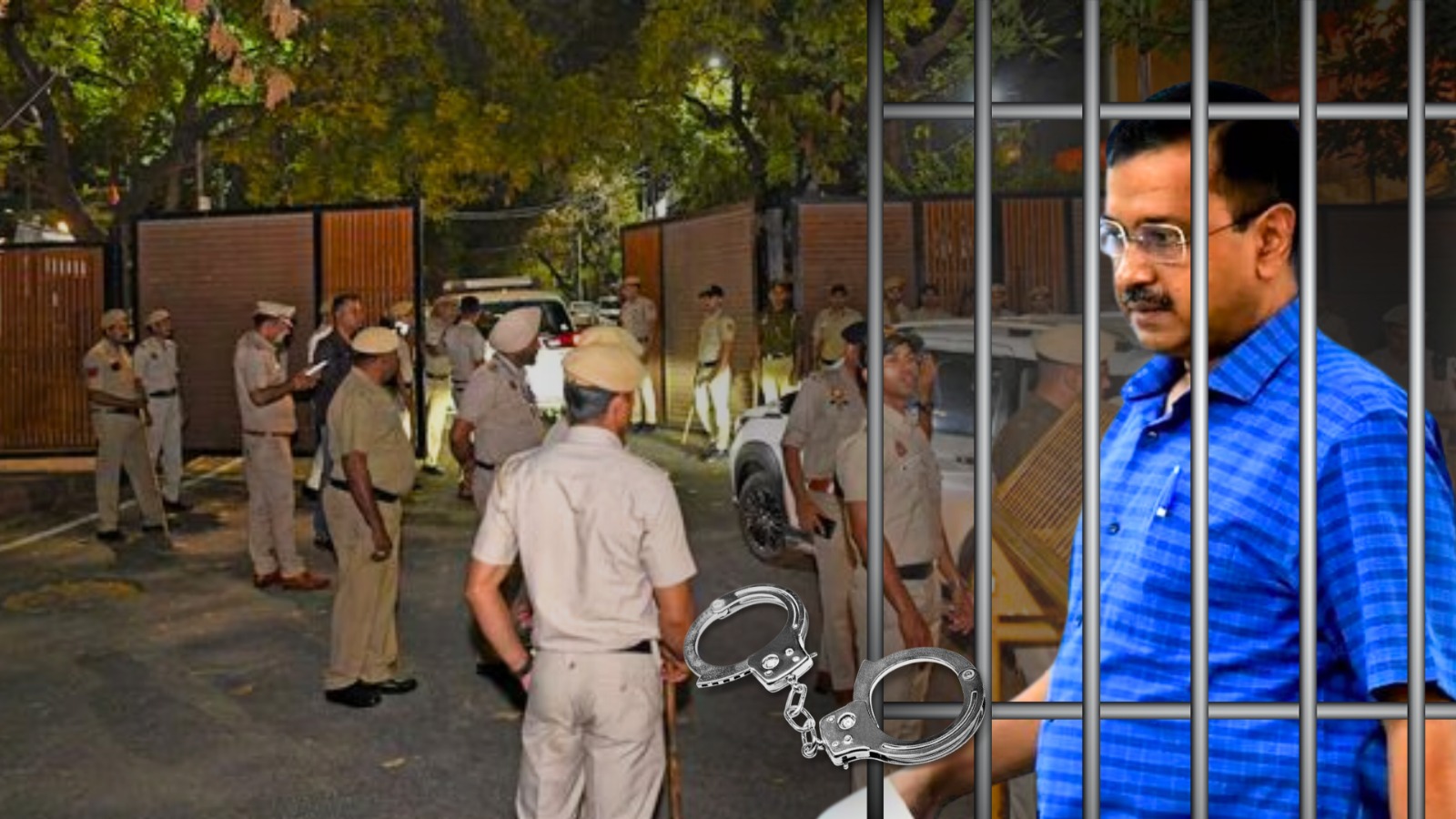On Thursday, the Enforcement Directorate (ED) detained Arvind Kejriwal, Delhi’s Chief Minister, regarding the liquor policy case after the Delhi High Court rejected his request for protection from arrest, leading the probe agency to visit the residence of the Aam Aadmi Party (AAP) chief.
However, Why is Kejriwal’s arrest unusual?
1. Arvind Kejriwal’s arrest is unprecedented as he is the first sitting Chief Minister in Indian history to face such action.
2. The arrest came shortly after the Delhi High Court declined to provide Kejriwal with protection against arrest.
3. In contrast, previous instances involved Chief Ministers like Hemant Soren of Jharkhand who resigned ahead of his arrest and Lalu Yadav, made his wife the CM take over before arrest.
4. Notably, Kejriwal is the first sitting Chief Minister who has been arrested without a chargesheet or conviction. So the investigation has not presented evidence against him and the court has not found him guilty.
5. Unlike Jayalalithaa, who was arrested after a court conviction, Kejriwal remains active in running the state from jail, with his party affirming his right to do so until proven guilty.
6. However, there is a possibility that the Centre could suspend or remove him from office, as is standard procedure for arrested government officials who are public servants.
7. Another point of concern is the absence of adequate security for a sitting Chief Minister in jail, considering Kejriwal’s entitlement to Z plus security under normal circumstances.
How Can Kejriwal Run State From Behind Bars?
The Representation of People Act (RP Act), 1951, governs elections, lawmaker qualifications, and disqualifications. As per the Act, an MP or MLA faces disqualification upon conviction for an offense. However, since Kejriwal has not been convicted, there is no impediment to his role as CM.
Interestingly, ministers like Satinder Jain and Manish Sisodia in Kejriwal’s government remained in their positions post-arrest and resigned only after bail was denied. Yet, the practicality of governing while in jail raises concerns. Historically, CMs have often resigned immediately upon arrest to ensure smooth administration continuity.
What is the Role of LG Now?
In Delhi’s unique constitutional setup, there’s both an elected government and a Lieutenant Governor (LG) appointed by the central government due to the city’s significance as the National Capital Territory (NCT).
The role of the LG, as defined in Article 239 AA, is crucial. This article outlines the powers and responsibilities of the elected government, the CM, the LG, and Parliament concerning Delhi. The authority of the elected government and the CM stems from this constitutional provision. However, the LG holds the authority to propose suspending this provision’s operation.
Article 239 AB grants the LG the power to recommend to the President of India the suspension of Article 239 AA. This provision allows for the suspension of specific provisions or laws related to Delhi if the President, based on the LG’s report or other factors, believes that the administration of the NCT cannot proceed as per the constitutional provisions or existing laws, or if such action is necessary for proper administration.
Therefore, it’s evident that the LG could recommend imposing President’s rule if there’s a breakdown in Delhi’s constitutional machinery. However, such a decision would have significant consequences, particularly considering the upcoming Lok Sabha elections in less than a month, affecting both Kejriwal and the AAP.























